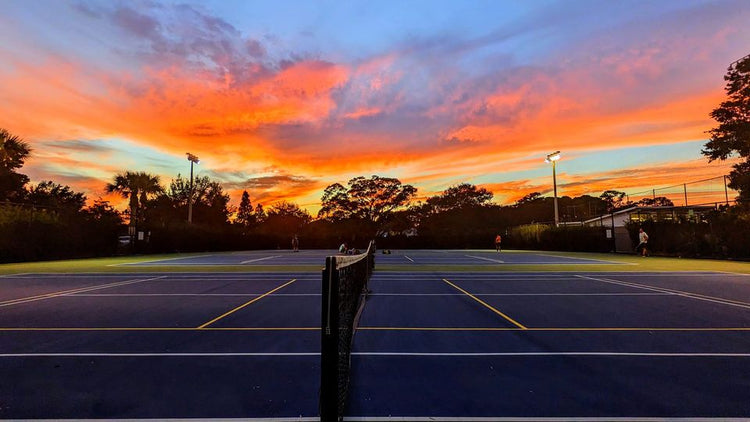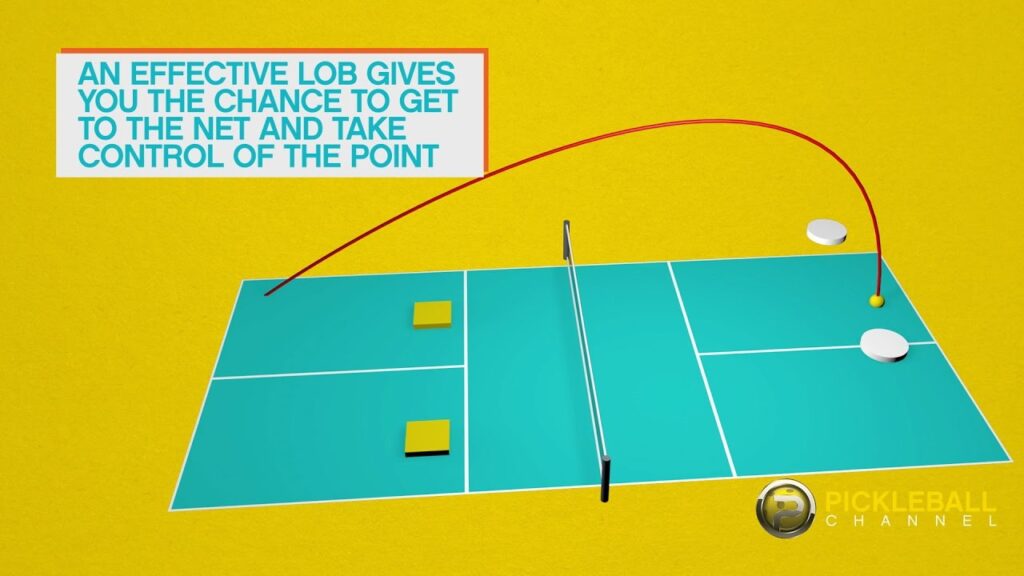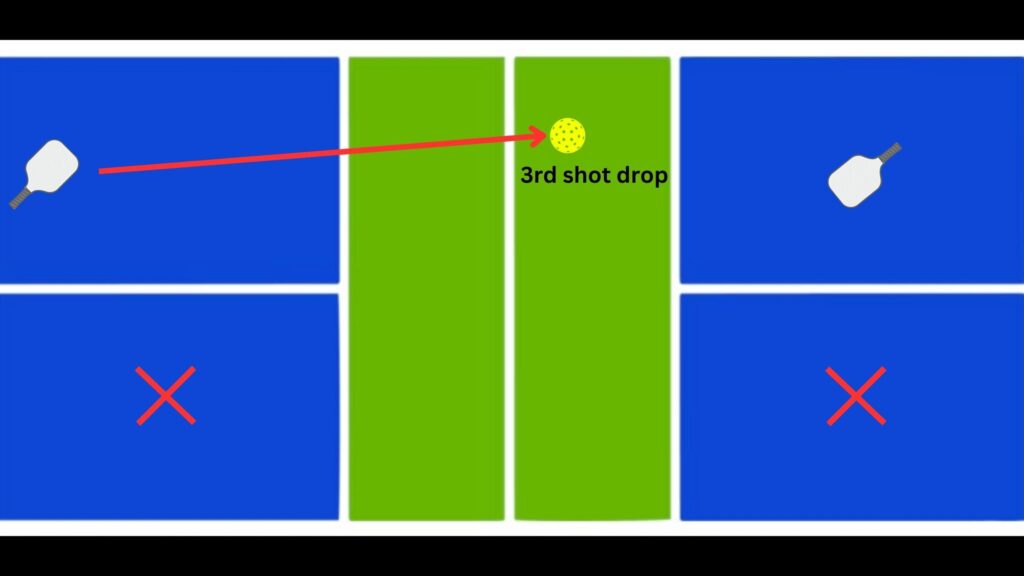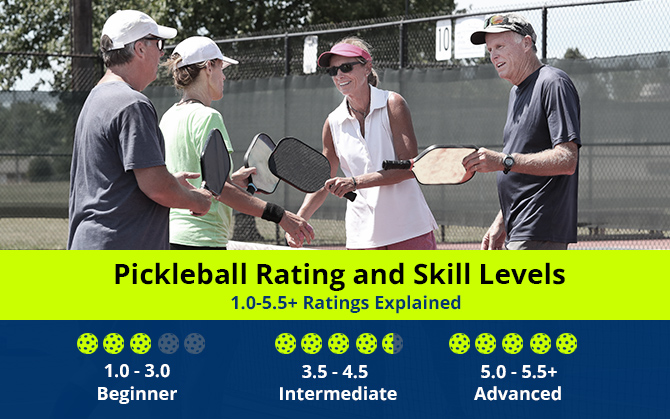You should play pickleball for about 30 minutes to an hour for a good workout and enjoyment. Playing for this length of time allows you to get a good amount of physical activity and skill development without getting overly fatigued.
Pickleball is a popular sport that has gained a lot of attention in recent years. It’s a fun and fast-paced game that combines elements of tennis, badminton, and table tennis, making it suitable for people of all ages and skill levels.
Whether you’re a beginner or a more experienced player, pickleball offers a great way to stay active and socialize. We will discuss the ideal duration for playing pickleball, the benefits of the game, and some tips for maximizing your experience on the court. By the end, you’ll have a clear understanding of how long you should play pickleball and how it can positively impact your overall well-being.
1. Importance Of Understanding Playing Time
Playing time in pickleball is crucial for maintaining the fun and competitive nature of the game. Understanding how long you should play can enhance your overall experience on the court.
1.1 Benefits Of Establishing Playing Time
- Ensures fair rotation among players
- Helps manage energy levels effectively
- Enhances skill development through consistent play
- Promotes teamwork and collaboration
1.2 Factors To Consider In Determining Playing Time
- Player experience levels – Adjust playing time based on skill levels to maintain engagement.
- Physical fitness – Consider the endurance of players for appropriate game duration.
- Court availability – Adhere to set schedules to accommodate all players.
- Weather conditions – Modify playing time to ensure player safety and comfort.
2. Duration Of Pickleball Sessions
When it comes to playing pickleball, the duration of your sessions can greatly impact your overall performance and progress. It is essential to understand the optimal amount of time to spend on the court to maximize the benefits of this engaging sport.
2.1 Recommended Duration For Beginners
For beginners, it is recommended to start with shorter sessions, typically around 30 minutes to 1 hour. This allows newcomers to gradually build their skills, stamina, and familiarity with the game without overexerting themselves.
2.2 Recommended Duration For Intermediate Players
Intermediate players can benefit from longer sessions, ranging from 1 to 2 hours. This extended playtime provides ample opportunity to practice techniques, strategies, and footwork while enhancing overall gameplay.
2.3 Recommended Duration For Advanced Players
For advanced players, sessions lasting 2 hours or more are ideal. This prolonged play allows experienced individuals to fine-tune their skills, work on advanced strategies, and engage in competitive matches that push their limits.
3. Frequency Of Pickleball Sessions
Exploring the ideal duration for pickleball gameplay sessions can vary based on individual preferences and fitness levels. It is recommended to start with shorter sessions to avoid fatigue and gradually increase playtime for a balanced experience. Listening to your body’s cues is key to determining the right frequency for your pickleball sessions.
When it comes to playing pickleball, finding the ideal frequency of sessions is essential to your overall progress and improvement. Whether you are a beginner, intermediate, or advanced player, understanding how often you should play can help you achieve your desired skill level. In this section, we will explore the ideal frequency for each skill level, ensuring that you make the most out of your pickleball sessions.
3.1 Ideal Frequency For Beginners
For beginners, it’s important to gradually build your skills and stamina while minimizing the risk of injury or burnout. Starting slow and gradually increasing your playing time is key. Ideally, beginners should aim for two to three sessions per week, allowing for proper rest and recovery in between. This frequency will give you ample time to practice your technique, get comfortable with the game, and build endurance over time.
3.2 Ideal Frequency For Intermediate Players
Intermediate players, who have gained a decent level of proficiency in the game, can increase their frequency to three to four sessions per week. This increased frequency allows for more practice time and opportunities to refine your skills. By playing more frequently, you will continue to build muscle memory, improve hand-eye coordination, and develop a deeper understanding of the game’s strategies and tactics.
3.3 Ideal Frequency For Advanced Players
Advanced players, who have honed their skills and are looking to reach peak performance, can aim for four to six sessions per week. With this higher frequency, you will be able to push your boundaries, challenge yourself against skilled opponents, and reinforce your existing techniques. This increased dedication and consistency in your practice will help you maintain a high level of proficiency and continuously improve your gameplay.
In summary, the ideal frequency of pickleball sessions depends on your skill level. Beginners should start with two to three sessions per week, while intermediate players can increase to three to four sessions per week. Advanced players can aim for four to six sessions per week. Remember to listen to your body, give yourself enough rest, and gradually increase the intensity and duration of your sessions. By finding the right balance, you can make consistent progress and enjoy the game to the fullest.
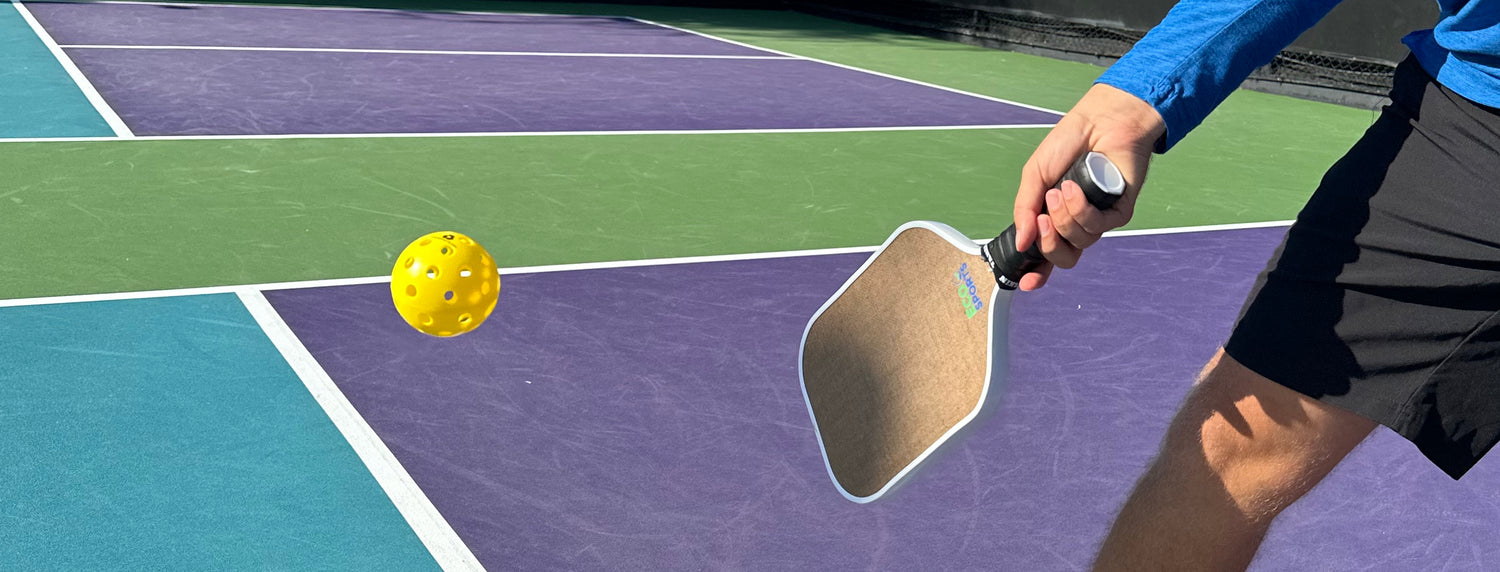
Credit: ecosports.com
4. Balancing Playtime With Rest And Recovery
In pickleball, finding the right balance between playtime and rest is crucial for maintaining peak performance and preventing injury. Understanding the importance of rest, incorporating rest days, and following recommended recovery practices are essential for players of all levels. Let’s explore how to strike the perfect balance between play and recovery.
4.1 Understanding The Importance Of Rest
Rest is vital for allowing the body to recover and repair after intense physical activity. Without adequate rest, the risk of overuse injuries and burnout increases. Ensuring sufficient rest allows the muscles, tendons, and joints to heal, promoting longevity in one’s pickleball journey.
4.2 Tips For Incorporating Rest Days
Incorporating regular rest days into your pickleball schedule is key to maintaining optimal performance. Strategically plan rest days to follow intense playing sessions, giving your body the opportunity to recuperate. Consider engaging in light, low-impact activities on rest days to promote blood flow and aid in recovery.
4.3 Recommended Recovery Practices
Adopting recommended recovery practices can significantly enhance your performance and overall well-being. Prioritize activities such as stretching, foam rolling, and adequate hydration to aid in muscle recovery. Additionally, incorporating proper nutrition and sufficient sleep into your routine fosters optimal physical and mental recuperation.
5. Customizing Playing Time
Pickleball is a versatile sport that can be enjoyed by people of all ages and skill levels. When it comes to determining how long you should play, customizing your playing time is essential to ensure that you’re getting the most out of your sessions while also preventing injuries. Customizing playing time involves listening to your body’s needs, adjusting playing time based on age, and considering various factors that can impact your playing experience.
5.1 Listening To Your Body’s Needs
During a pickleball game, it’s crucial to pay attention to your body’s signals. Listening to your body’s needs means knowing when to take a break and rest if you feel any discomfort or fatigue. It’s important to avoid overexertion to prevent strain and potential injuries. Take short breaks between games or matches to allow your body to recover and avoid pushing yourself too hard.
5.2 Adjusting Playing Time Based On Age
Age plays a significant role in determining how long you should play pickleball. As you get older, it’s essential to adjust your playing time to avoid overexertion. Adjusting playing time based on age involves being mindful of your stamina and energy levels. Older players may benefit from shorter sessions or incorporating longer rest periods to avoid putting excessive strain on their bodies.
5.3 Factors To Consider In Customizing
When customizing your playing time, there are several factors to consider. These include your overall fitness level, any pre-existing injuries, the intensity of the game, and the playing conditions. Assessing these factors can help you determine the optimal playing time that aligns with your physical capabilities and personal requirements.
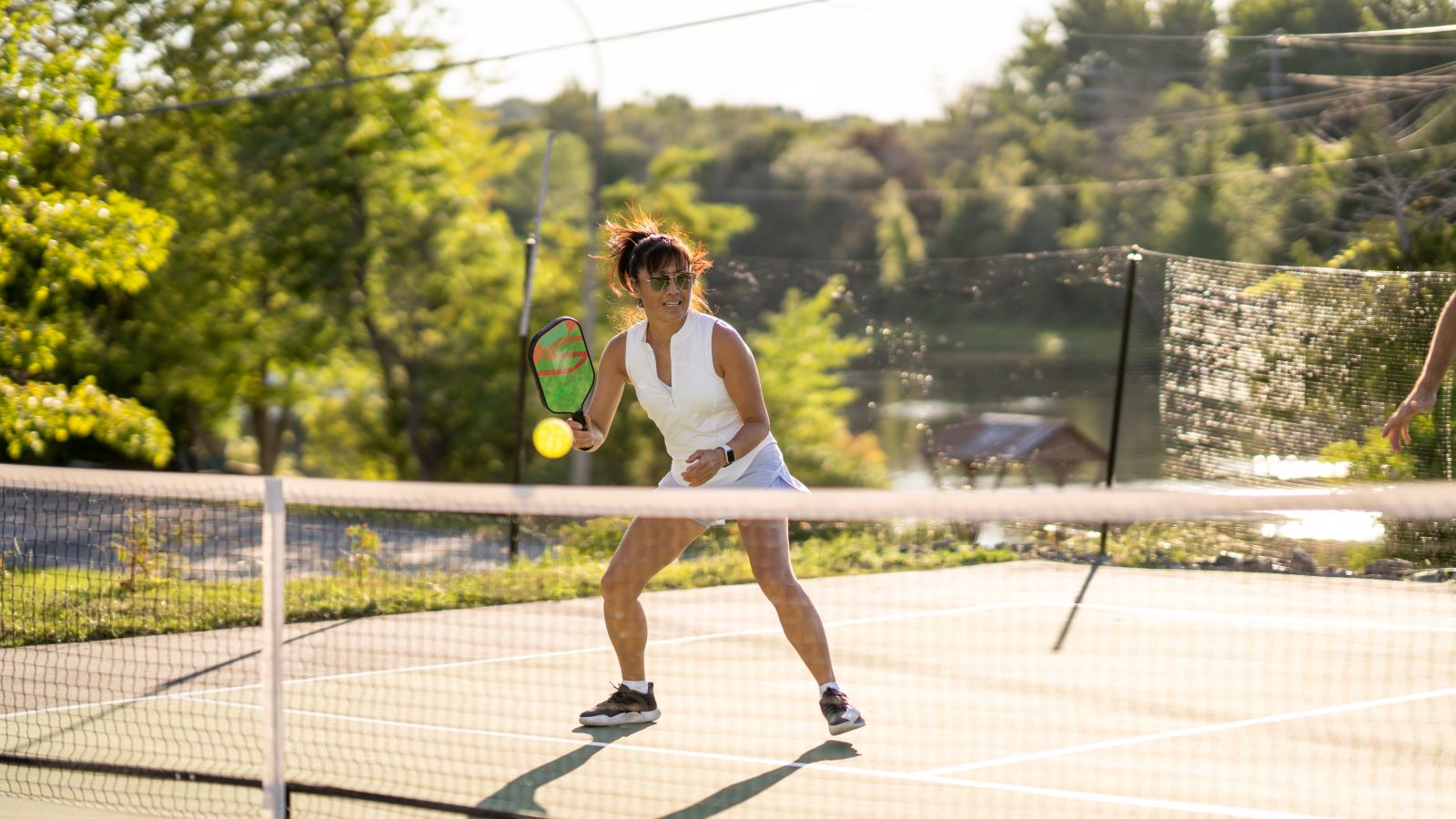
Credit: ctorthomidstate.org
6. Duration Of Pickleball Matches
The duration of pickleball matches can vary depending on several factors, including the number of players involved and the playing style of each individual. It’s important to understand how long matches typically last in order to plan and manage your time effectively during gameplay.
6.1 Typical Duration Of Singles Matches
The duration of singles matches in pickleball usually ranges from 15 to 30 minutes. This timeframe allows players to engage in intense rallies and showcase their individual skills. However, it’s important to note that the duration may be influenced by factors such as player experience and fitness levels.
6.2 Typical Duration Of Doubles Matches
Doubles matches in pickleball often last longer than singles matches. On average, doubles matches can take anywhere from 30 to 45 minutes. With four players on the court, there are more opportunities for teamwork, strategizing, and longer rallies. It’s important to keep this in mind when planning your pickleball session.
6.3 Strategies For Managing Time In Matches
Managing time effectively during pickleball matches is crucial to ensure a smooth and enjoyable gameplay experience. Here are some strategies to help you stay on track:
- Set a Time Limit: Before starting a match, agree with your opponents on a time limit to prevent matches from dragging on. This can help maintain a steady pace and ensure that everyone gets ample playing time.
- Maintain a Consistent Serve Routine: Establishing a consistent serve routine can help save time during matches. By quickly retrieving and serving the ball, you can keep the game flowing smoothly.
- Stay Focused: Avoid unnecessary delays between points by staying focused and ready to play. Minimize breaks between rallies and keep the momentum going.
- Communicate with Your Partner: In doubles matches, effective communication with your partner can help streamline gameplay. Decision-making and strategy discussions should be concise and efficient, reducing time wasted on unnecessary conversations.
- Practice Efficient Ball Retrieval: Developing quick and efficient ball retrieval skills can help save valuable time during matches. Move swiftly to retrieve out-of-bounds balls and return them promptly for continuous gameplay.
Taking these strategies into consideration can help you make the most out of your pickleball match time. Remember, being mindful of time management will ensure that you have ample opportunity to enjoy the game and improve your skills.
7. Evaluating And Adjusting Playing Time
When it comes to enjoying the sport of pickleball, finding the right balance in playing time is crucial for both performance and overall well-being. Evaluating and adjusting your playing time can help prevent burnout and injuries, ensuring a long-lasting passion for the game.
7.1 Recognizing Signs Of Overplaying
Recognizing signs of overplaying is essential to maintaining a healthy approach to your pickleball routine. Signs may include persistent muscle soreness, fatigue, decreased performance, and lack of motivation to play.
7.2 Steps To Take When Overplaying
If you experience signs of overplaying, taking action is crucial to avoid potential long-term consequences. Steps may include taking a break from playing, focusing on recovery, and consulting with a healthcare or sports professional.
7.3 Adjusting Playing Time According To Performance
Adjusting your playing time according to your performance can help you maintain a consistent level of play and prevent burnout. By monitoring your performance indicators such as energy levels, focus, and overall enjoyment, you can make informed decisions about the duration and intensity of your play sessions.

Credit: www.royalshell.com
Frequently Asked Questions For How Long Should You Play Pickleball
How Long Should A Pickleball Game Last?
A typical pickleball game should last around 15 to 30 minutes for a standard two-out-of-three match. The duration can vary based on skill levels, scoring methods, and game intensity.
What Is The Ideal Playing Time For Pickleball?
The ideal playing time for pickleball ranges from 30 minutes to 1 hour for a satisfying and enjoyable game, allowing players to engage in sufficient rallies and strategic gameplay.
How Does Playing Duration Impact Pickleball Performance?
Playing for an optimal duration ensures participants experience improved endurance, skill enhancement, and ample participation in the game, leading to a well-rounded and beneficial pickleball experience.
Conclusion
To wrap up, the ideal length of time to play pickleball varies depending on your fitness level, goals, and preferences. Whether you’re a beginner or a seasoned player, finding the right balance is key. Take the time to listen to your body, gradually increase your playtime, and incorporate rest days to prevent overexertion.
Remember, pickleball is meant to be enjoyable, so find a playing duration that suits you and allows you to continuously improve your skills while having fun.
Neil jacobson is an avid Pickleball enthusiast, writer, and coach dedicated to sharing the joy and intricacies of the sport. With 6 years of experience on the court and a passion for teaching, Courtney brings a unique perspective to his writing, offering practical insights and strategies for players of all levels. As a certified Pickleball coach, his mission is to inspire and empower individuals to excel in the game while fostering a sense of community within the Pickleball world. Through his articles, guides, and coaching sessions, Neil aims to elevate the playing experience and share the infectious enthusiasm that defines the Pickleball community.

